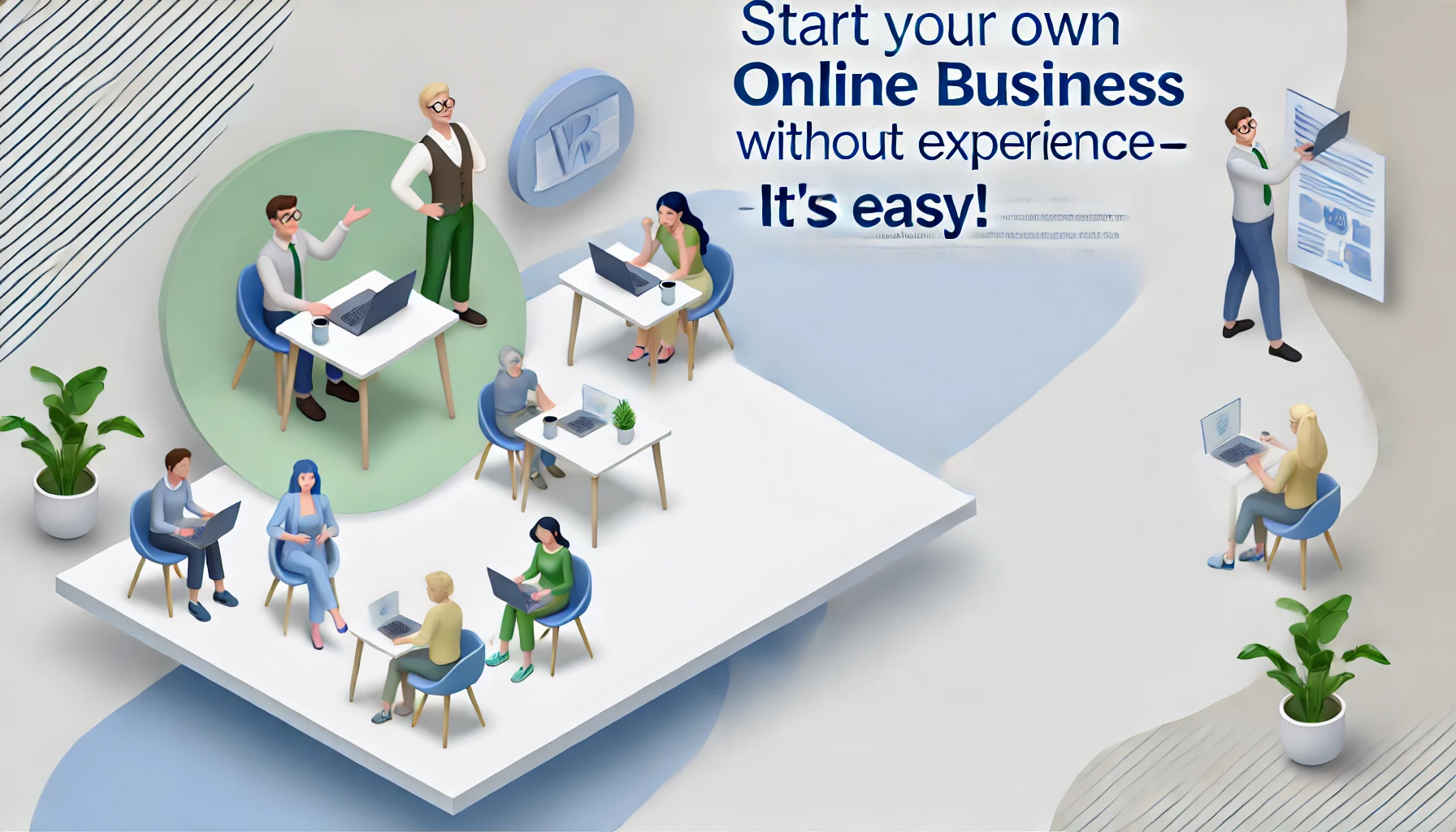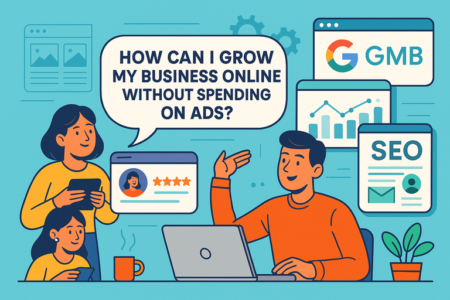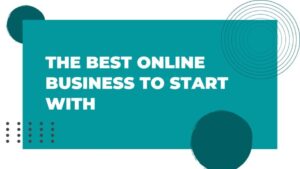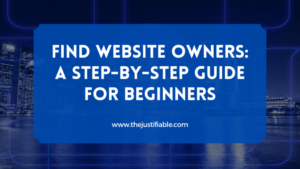Table of Contents
Have you ever thought about starting your own online business but felt overwhelmed by the idea of having no experience? Is it possible to succeed in the digital world without formal training? If you’ve been asking yourself these questions, you’re in the right place! Starting your own online business might seem intimidating, but with the right guidance, it’s easier than ever—even for beginners.
In this article, we’ll walk you through everything you need to know, from choosing the best business models for beginners, like dropshipping and affiliate marketing, to actionable steps that will get your business up and running.
Why Starting Your Own Online Business Is Easier Than You Think
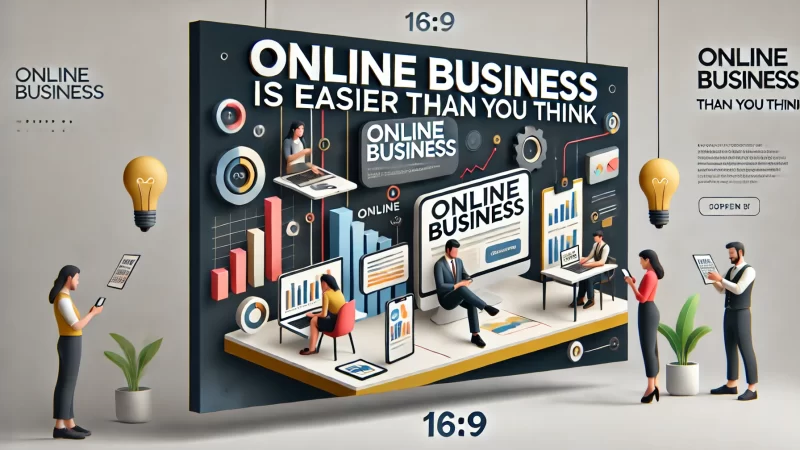
Starting your own online business is no longer reserved for tech-savvy individuals or seasoned entrepreneurs. Today, anyone can create a thriving online venture. Whether you’re looking for a side hustle or a full-time income, the barrier to entry has dropped dramatically, making it easier than ever to start with little or no experience.
I understand how overwhelming it might feel to take the first step. But guess what? The tools, platforms, and resources available today allow even complete beginners to launch their online business with minimal effort. All you need is dedication, a solid strategy, and the willingness to learn and adapt along the way.
Online Business: More Accessible Than Ever for Beginners
The internet has truly democratized business. I remember a time when starting a business meant large upfront costs and inventory risks. Today, platforms like Shopify or Etsy let you launch a dropshipping store or digital products shop without needing any stock. That means lower financial risk and fewer logistics headaches.
What’s more, social media platforms such as Instagram and TikTok provide free marketing opportunities. You don’t need a large budget to get your business noticed. I always advise beginners to leverage these tools to get the word out about their offerings. It’s incredible how much growth you can achieve with zero ad spend.
The convenience of online businesses today extends to their flexibility. You can work from anywhere, and as long as you have a laptop and internet connection, your business can thrive. I’ve seen students and stay-at-home parents successfully run online businesses in their spare time, making this model accessible to anyone.
Additionally, you don’t have to be an expert to start. You can learn on the go. Platforms like YouTube, Udemy, and Skillshare offer countless tutorials and courses on e-commerce, digital marketing, and more. I believe in learning by doing. As you build your business, you’ll naturally develop the skills you need for success.
The Rise Of Digital Entrepreneurship: A Game Changer For All
Digital entrepreneurship has skyrocketed in recent years. I find that the surge of online business tools and apps makes it so much easier for people with limited experience to become entrepreneurs. With tools that handle web hosting, payment processing, and customer service, you can focus on growing your business.
One of the most significant aspects I’ve noticed is the ability to scale quickly. Traditional brick-and-mortar stores are limited by their physical location, but with an online business, the world is your marketplace. Even a single digital product can reach customers globally, which I think is a massive advantage for new entrepreneurs.
The low start-up costs associated with digital businesses are another reason for their popularity. I recall a friend starting a print-on-demand business with no upfront inventory. Platforms like Teespring or Redbubble allow you to sell custom designs without producing the items until an order is placed. It’s a safe way to test business ideas.
Social media has also transformed how businesses interact with customers. You can engage directly with your audience, gather feedback, and tweak your offerings based on real-time input. This direct connection with your market allows you to stay agile and responsive. I highly recommend tapping into these engagement strategies early on.
Lastly, the digital landscape offers countless passive income opportunities. Whether it’s through affiliate marketing, ad revenue from blogs, or online courses, you can create a business that earns while you sleep. I love how this allows for a more flexible lifestyle and opens doors for financial independence.
How To Start Your Own Online Business Without Any Experience
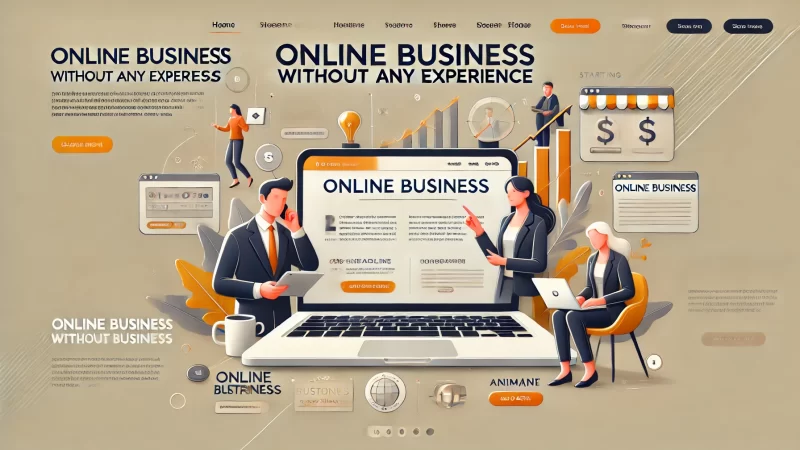
If you’re starting from scratch with no business experience, you’re not alone. Many successful entrepreneurs began the same way, and you can too! The good news is that you don’t need a business degree to launch a thriving online venture. By following some simple steps and taking things one step at a time, you’ll be well on your way.
I always advise starting small. You don’t have to do everything at once. Instead, focus on one thing, learn as you go, and expand when you’re ready. The key is consistency and a willingness to try new things. With that mindset, you’ll find that the learning curve is manageable and even exciting!
Breaking It Down: Understanding The Basics Of Online Businesses
Before diving into specific business models, it’s crucial to understand how online businesses operate. The core idea is that you’re either selling a product or a service online. I find it helpful to identify which area resonates most with your skills and interests—this way, you’ll stay motivated to keep pushing forward.
Products can be physical, like items sold in an e-commerce store, or digital, such as e-books or courses. Services can include anything from consulting to graphic design. I believe the flexibility of these models is what makes online business so appealing. You have endless options to tailor your approach to your strengths.
Revenue streams vary as well. Some businesses earn through direct sales, while others make money via commissions, advertising, or subscriptions. For example, affiliate marketing lets you earn by promoting other people’s products. I’ve seen many beginners succeed with this because there’s no need to create their own product.
One crucial aspect of running an online business is your website or platform. It acts as the hub for your operations. Whether you use a simple website or a social media account, the platform you choose will serve as your business’s face. I recommend keeping it simple at first—don’t overcomplicate things.
Understanding the role of traffic is key. To make sales or earn commissions, you need people visiting your site or social media page. This is where marketing strategies, such as SEO or social media promotion, come into play. I’ve found that many beginners thrive once they grasp how to attract and convert this traffic.
Essential Skills You Can Learn As You Go
You don’t need to be a marketing expert or a tech guru to start an online business. I’ve seen beginners thrive by learning essential skills step by step. One of the first things I recommend is getting comfortable with basic marketing. Even learning the fundamentals of SEO can help bring free traffic to your business.
I also suggest learning how to build a simple website. With platforms like WordPress and Shopify, anyone can create a professional-looking site without any coding experience. I’ve used both and found that they offer a range of tutorials to help you navigate the setup process. It’s a crucial skill that will serve you well.
Managing social media is another valuable skill. Many online businesses rely heavily on platforms like Instagram, Pinterest, and TikTok for promotion. I’ve had great success growing small businesses just by staying active and posting content regularly. Social media marketing is an art, but one that you can learn through trial and error.
Another essential skill is copywriting. Whether it’s crafting persuasive product descriptions or engaging blog posts, words matter. I’ve found that practicing writing, even if you start small, can dramatically impact your business’s ability to attract and retain customers. Luckily, there are countless resources to help you improve this skill.
Lastly, understanding analytics is crucial for long-term success. Knowing how to interpret website or social media data allows you to make informed decisions. I always recommend beginners familiarize themselves with basic analytics tools, such as Google Analytics or platform-specific insights. This knowledge helps you optimize your efforts and grow faster.
Best Online Business Ideas To Get You Started Right Away
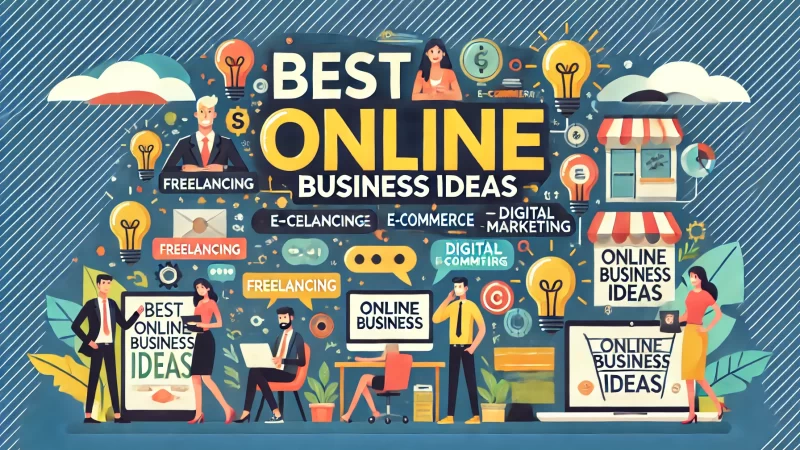
Starting your own online business might seem overwhelming, but the truth is, there are many accessible options for beginners. You don’t need a large budget or advanced skills to get started. With the right approach and dedication, you can turn a simple idea into a profitable online venture.
Here are some of the best online business ideas that don’t require a lot of experience or upfront investment. These models have been proven successful by many entrepreneurs and can help you get your foot in the door of online business ownership.
Start A Dropshipping Business With No Inventory Required
Dropshipping is an excellent option for beginners who want to start selling physical products without the hassle of inventory management. I love how it allows you to focus on marketing and customer service, while the supplier handles order fulfillment. This business model can be very profitable if you choose the right niche.
The best part? You can start dropshipping with minimal financial risk. I recommend using platforms like Shopify or WooCommerce to set up your store. It’s also important to research and partner with reliable suppliers to ensure product quality and delivery speed. I’ve seen many new entrepreneurs succeed by focusing on niche markets with high demand.
One key to dropshipping success is mastering product research. I find that using tools like Oberlo or AliExpress can help you discover trending products that are popular among consumers. By staying updated on these trends, you can stock your virtual shelves with items that are in high demand, improving your chances of making sales.
I suggest focusing on customer experience to set yourself apart from other dropshipping stores. Offering responsive customer service, easy navigation, and clear product descriptions can boost your credibility and encourage repeat business. This is especially important since the market is competitive, and a great experience can build customer loyalty.
You can scale your dropshipping business over time by adding more products or branching out into related niches. I’ve heard of entrepreneurs starting with just one product and expanding as they grow. By staying flexible and open to trends, you’ll ensure your dropshipping business remains profitable and dynamic.
Make Money With Affiliate Marketing By Promoting Products You Love
Affiliate marketing is another fantastic online business model that’s ideal for beginners. In this model, you earn commissions by promoting other people’s products. I think it’s one of the easiest ways to start because you don’t need to create your own product, handle inventory, or deal with customer support.
To get started, I recommend signing up for affiliate programs through platforms like Flexoffers, ShareASale, or ClickBank. These programs offer access to thousands of products you can promote through your website, blog, or social media channels. It’s a simple way to earn passive income as you grow your audience.
Choosing products that align with your interests or expertise is crucial for success. I’ve found that promoting products you’re genuinely passionate about makes your recommendations more authentic, which builds trust with your audience. This connection is vital, as people are more likely to buy from someone they trust.
Affiliate marketing success often comes down to content creation. I suggest writing detailed product reviews, comparison articles, or even how-to guides that showcase the benefits of the products you promote. This provides value to your audience and encourages them to make a purchase using your affiliate links.
Tracking your results is essential in affiliate marketing. Most programs provide analytics tools to help you monitor which products are performing well. I advise regularly reviewing this data to optimize your efforts. Focus on the products that generate the highest conversions and adjust your strategies as needed for better results.
Create Digital Products: E-books, Courses, And Printables
Creating digital products is one of my favorite online business models because it allows for passive income. Once you’ve made a product, you can sell it over and over again without additional effort. Digital products like e-books, courses, and printables are perfect for beginners because they don’t require physical inventory.
If you have expertise in a particular field, I suggest creating an online course. Platforms like Teachable and Udemy make it easy to set up and market your course to a broad audience. I’ve seen people turn their hobbies, like photography or writing, into profitable online courses that attract learners worldwide.
E-books are another great option if you enjoy writing. You can self-publish your book on platforms like Amazon Kindle Direct Publishing (KDP) or Gumroad. I recommend choosing a niche topic that people are actively searching for. By writing on a subject you’re passionate about, you can build a loyal audience who values your insights.
Printables, such as planners, worksheets, and templates, are also in high demand. I’ve noticed these do particularly well on platforms like Etsy or even your own website. They’re easy to create using design tools like Canva, and once listed, they can bring in recurring sales with minimal effort.
Marketing your digital products effectively is key. I suggest leveraging social media, email marketing, or even blogging to drive traffic to your product listings. Building an audience before launching your product can generate buzz and increase your chances of a successful launch. I’ve found that even a small, engaged audience can lead to consistent sales.
Blogging: A Low-Cost Business With Unlimited Potential
Blogging is an excellent option for anyone who enjoys writing and sharing ideas. I started blogging as a hobby, but over time, I realized its potential as a full-fledged business. With a blog, you can generate income through multiple streams, such as affiliate marketing, sponsored posts, or ad diplaying.
Setting up a blog is simple and inexpensive. I recommend using WordPress or a similar platform to create your site. Focus on a specific niche that you’re passionate about—whether it’s travel, fitness, or finance. Blogging consistently will help you attract readers, and eventually, advertisers or affiliates interested in your audience.
Monetizing your blog takes time, but it’s achievable with dedication. I suggest starting with affiliate marketing, promoting products or services relevant to your readers. Once you build a following, you can partner with brands for sponsored posts. I’ve seen bloggers generate significant income through brand partnerships alone.
One thing I love about blogging is the freedom to express yourself. You can share your experiences, tips, and advice with your readers while building a personal brand. This helps establish you as an authority in your niche, which in turn attracts more opportunities, such as speaking engagements or collaborations.
I encourage new bloggers to be patient and consistent. Building an audience takes time, but with persistence, you’ll start to see growth. Creating valuable content that resonates with your readers will lead to organic traffic, and over time, your blog can become a significant source of income.
Turn Your Social Media Skills Into A Marketing Business
If you’re already active on social media, why not turn those skills into a business? Social media marketing is a rapidly growing field, and many businesses need help managing their social accounts. I think it’s one of the easiest ways to get started, especially if you enjoy creating content and engaging with online communities.
You can offer services like managing social media accounts, creating content calendars, or running ad campaigns. I suggest specializing in a platform like Instagram, TikTok, or Facebook to stand out from the competition. The more you know about the ins and outs of a particular platform, the more value you can provide to clients.
One way to attract clients is by showcasing your skills on your own social media. I’ve seen many social media marketers build impressive portfolios just by consistently posting high-quality content. This not only demonstrates your abilities but also helps attract potential clients who need your expertise.
Offering additional services like analytics reporting or audience engagement strategies can increase your earning potential. I’ve found that businesses value comprehensive packages that include both content creation and data analysis. This makes you a one-stop solution for their social media marketing needs.
Starting small by working with local businesses or solo entrepreneurs can help you gain experience and build your portfolio. As you grow your client base and develop your skills, you can charge higher rates and take on more extensive projects. I’ve seen many marketers scale quickly once they establish themselves in the field.
SEO Consulting: Leverage Search Engine Optimization For Profits
If you have a knack for optimizing websites or driving traffic, SEO consulting might be a great business idea for you. I find that many small businesses struggle with getting their websites noticed, and they’re willing to pay for help. SEO consulting allows you to use your skills to boost their online visibility.
To get started, I recommend learning the basics of SEO if you’re unfamiliar. Platforms like SEOPowersuite and Ahrefs offer excellent resources to help you understand keyword research, link building, and on-page optimization. I’ve found that mastering these skills opens doors to lucrative consulting opportunities.
Building your portfolio is crucial. You can start by offering free or discounted services to small businesses or friends to gain experience. I think this helps you not only build a portfolio but also understand the challenges businesses face in improving their SEO. These experiences are invaluable when pitching to new clients.
Offering audits is a great way to attract new clients. I suggest performing a detailed SEO audit of a potential client’s website and providing actionable tips for improvement. Most businesses appreciate this upfront value and are likely to hire you for ongoing consulting to implement the recommendations.
As your experience grows, so can your rates. I’ve heard of SEO consultants charging anywhere from $500 to several thousand dollars per month, depending on the client and the scope of the project. It’s a flexible and scalable business model that allows you to work with multiple clients simultaneously.
Actionable Steps To Launch Your First Online Business Today
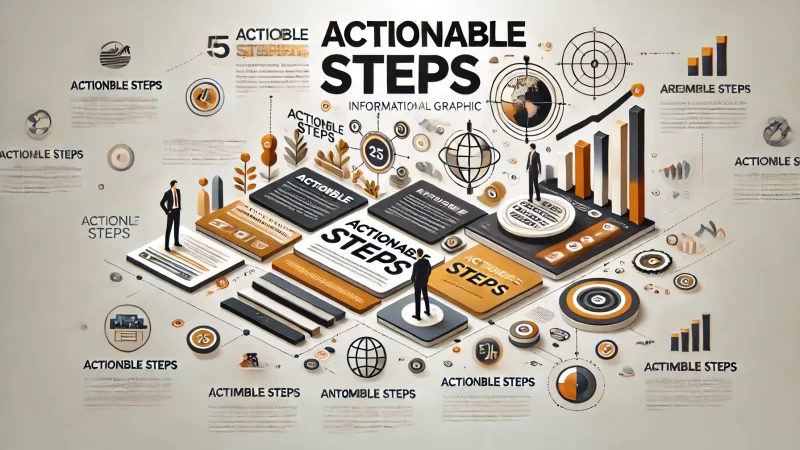
Starting an online business can be a game-changing decision. If you’re wondering where to begin, you’re not alone. Many beginners feel uncertain at first, but taking it step by step makes it far more manageable. I recommend focusing on simple, actionable steps to get your business off the ground without feeling overwhelmed.
By following these steps, you’ll have a roadmap to move from idea to execution. It’s all about setting a solid foundation first. Let me show you how to identify your niche, build your platform, and market your business without spending a fortune.
Step One: Pick A Niche You’re Passionate About
Choosing the right niche is critical to the success of your online business. I’ve found that working on something you’re passionate about not only keeps you motivated but also makes it easier to stay consistent. Think about the topics or industries you love or have experience with, as they will help you create more engaging content.
It’s important to balance passion with profitability. I suggest finding a niche that not only excites you but also has a strong market demand. I recommend tools like Google Trends or Buzzsumo to identify trending niches. This helps you gauge interest and ensure your efforts will attract a viable audience willing to pay for your products or services.
Start by narrowing down your interests. I think having a specific focus makes it easier to target the right customers. For example, instead of starting a general fitness blog, you could specialize in fitness for busy professionals. The more specific your niche, the better chance you have to stand out in a crowded market.
Once you’ve chosen your niche, I advise testing it by creating some content or offering a sample product. This will help you gauge interest without committing to a full launch. By gathering feedback early, you can refine your approach and ensure your business idea resonates with your target audience.
Don’t worry if you’re not 100% sure about your niche at first. I’ve learned that it’s okay to pivot later as you discover what works. The key is to start and be flexible as you gain experience. Picking a niche is the first step, but it won’t be the last adjustment you make as your business evolves.
Step Two: Research Your Target Market And Competitors
Once you’ve chosen your niche, it’s time to dig deeper into understanding your target market. I find that knowing who your audience is and what they need will give you a huge advantage. Spend some time learning about their pain points, preferences, and purchasing habits. This helps you create offers that truly resonate.
I recommend joining online communities where your target audience hangs out. Platforms like Reddit, Facebook groups, or niche forums are great places to see what questions or problems people are discussing. I’ve noticed that when you pay attention to your audience’s concerns, you can create solutions they’re already searching for.
Competitor research is equally important. I suggest analyzing other businesses in your niche to see what they’re doing well and where they fall short. This insight can help you carve out a unique position in the market. I often use tools like SpyFu or SEMrush to examine competitors’ websites and marketing strategies.
Don’t be discouraged if you see strong competition. I believe it’s a sign that there’s demand in the market. Instead of worrying about saturation, focus on how you can bring something new or better to the table. Your unique approach is what will set you apart from others in the industry.
Once you understand your audience and competitors, I recommend creating customer personas. These are fictional profiles that represent your ideal customers. Defining your audience helps you tailor your marketing messages and business strategy more effectively, leading to better results.
Step Three: Build A Simple Website Or Social Media Presence
Having a solid online presence is crucial for any business. I know it might feel intimidating at first, but building a simple website or setting up a social media profile doesn’t require advanced tech skills. In fact, platforms like WordPress, Shopify, or Squarespace make it incredibly easy for beginners to create a professional-looking site.
I suggest starting small. Your website doesn’t need to be perfect from day one. Focus on the essentials: a clean design, clear messaging, and easy navigation. I’ve found that the most effective websites clearly explain what they offer and how customers can benefit. Keep it simple and direct—don’t overcomplicate things.
If building a website feels like too big of a task, consider starting with a strong social media presence. Platforms like Instagram, Facebook, or even TikTok can serve as a landing page for your business. I recommend using your chosen platform to showcase your expertise, connect with your audience, and promote your products or services.
Make sure your website or social media profile is optimized for your niche. I believe using keywords related to your business helps potential customers find you more easily through search engines or social platforms. Think about the terms people would use to search for your services and integrate them naturally into your content.
Lastly, I advise setting up basic analytics to track your traffic and engagement. Google Analytics or social media insights can show you what’s working and where you need to improve. Over time, this data helps you refine your marketing strategy and grow your business more effectively.
Step Four: Start Promoting Your Business With Free Tools
Once your website or social media presence is up, it’s time to spread the word. I recommend using free marketing tools to get the ball rolling without breaking the bank. In my experience, social media platforms, SEO, and email marketing are some of the most effective ways to promote your business for free.
Content marketing is a powerful tool. I think creating blog posts, videos, or social media content that educates or entertains your audience helps you build trust. Share valuable tips, how-tos, or insights related to your niche. This establishes you as an expert and keeps your audience engaged over time.
Social media promotion doesn’t have to be complicated. I suggest posting consistently and interacting with your followers to build relationships. You can also use hashtags, collaborate with influencers, or join groups in your niche to increase visibility. These strategies can drive traffic to your website or profile without spending any money.
SEO is another free way to attract visitors to your site. I’ve found that optimizing your content for search engines can bring in organic traffic over time. Focus on relevant keywords, write valuable content, and ensure your site is easy to navigate. SEO takes time to see results, but the payoff can be significant.
Lastly, I recommend building an email list from day one. Offering a free resource, like a guide or checklist, in exchange for email addresses is a great way to grow your list. Email marketing is still one of the most effective ways to engage your audience, promote products, and drive sales without paying for ads.
Step Five: Monetize Your Efforts Using Proven Strategies
Now that you’ve built your platform and attracted an audience, it’s time to monetize your online business. There are countless ways to make money, depending on your niche and business model. I recommend starting with one or two strategies, refining them, and then exploring other options as your business grows.
Affiliate marketing is a great way to earn commissions by promoting products you believe in. I’ve seen many entrepreneurs use this method to generate passive income. Simply recommend products relevant to your audience, and earn a commission for each sale made through your referral links. It’s a simple and effective way to monetize.
If you’ve created digital products, such as e-books or courses, I suggest setting up a system to sell them directly through your website. I love how digital products allow you to scale without the need for physical inventory. With each sale, you can deliver value to your customers while earning passive income.
Another proven strategy is offering services, like consulting, coaching, or freelance work. I’ve noticed that many online entrepreneurs start by offering their expertise to clients and gradually transition into passive income streams. This allows you to build your reputation and earn consistent income as you expand your offerings.
You can also monetize your content through advertising or sponsorships. Platforms like Adsterra allow you to earn money by displaying ads on your website or blog. Alternatively, I suggest partnering with brands for sponsored content if you’ve built a solid following. Both methods can provide additional income streams.
No matter which monetization strategies you choose, the key is to stay patient and consistent. I’ve found that success doesn’t happen overnight, but with persistence and a willingness to adapt, you can turn your online business into a profitable venture over time.
How To Stay Motivated When Starting Your Online Business
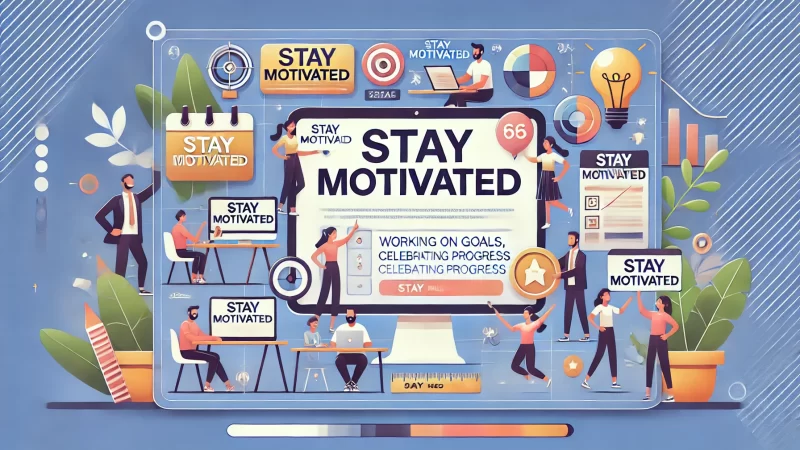
Starting your own online business is exciting, but it can also be challenging to stay motivated. I know how easy it is to feel overwhelmed in the early stages when results seem far away. Maintaining motivation is key to keeping you on track and pushing through the inevitable obstacles that arise.
It’s essential to cultivate habits and strategies that keep you focused on your long-term goals. By setting achievable milestones and rewarding yourself along the way, you’ll find that even small wins can fuel your progress. Let’s dive into how you can stay motivated and avoid common pitfalls.
The Power Of Setting Realistic Expectations From The Start
I’ve learned that setting realistic expectations can make or break your entrepreneurial journey. When you first start, it’s tempting to expect overnight success, but I recommend focusing on small, consistent progress. Expecting instant results can lead to frustration, so it’s important to set achievable goals.
Break your goals into manageable tasks. Instead of aiming to build a profitable business in a month, set goals like launching your website or acquiring your first 10 customers. This keeps things manageable, and each milestone feels like a victory. I’ve found that celebrating small achievements can boost motivation significantly.
Patience is key. I advise beginners to avoid comparing their progress to established businesses. Building anything meaningful takes time, and setbacks are a natural part of the process. I noticed that when I set more realistic expectations, I felt less pressure and enjoyed the journey much more.
I also suggest maintaining flexibility in your approach. Sometimes, your original plan may not work out, and that’s okay. I’ve learned that adapting to new circumstances and challenges is crucial for long-term success. Flexibility allows you to pivot when necessary without feeling like you’ve failed.
Lastly, track your progress regularly. I find that reviewing what you’ve accomplished helps you stay motivated. It’s easy to lose sight of how far you’ve come when you’re focused on future goals. Keeping a journal or checklist of achievements can remind you of the progress you’ve already made.
Overcoming Common Obstacles: What To Expect In The First Year
The first year of starting an online business is often the hardest, but I believe that knowing what to expect can help you push through. I’ve found that many new entrepreneurs face common challenges, such as slow growth, limited revenue, or tech difficulties. These obstacles are normal, so don’t get discouraged.
Expect slow growth in the beginning. It takes time to build an audience or customer base, and I suggest focusing on long-term strategies rather than quick wins. I’ve seen that those who stay consistent, even when growth seems slow, often experience greater success in the long run.
Financial challenges are common in the first year. You may not generate a significant income right away, and that’s okay. I recommend keeping your expenses low while you build your business. Many successful entrepreneurs start small, reinvesting profits as their business grows, which I believe is a smart approach.
Tech issues can also be frustrating, especially for beginners. I’ve experienced many roadblocks with website building, payment systems, or marketing tools. However, I find that troubleshooting and learning how to solve these problems yourself can make you more resilient. Don’t be afraid to ask for help or use online tutorials.
Self-doubt is another common obstacle. I’ve heard many entrepreneurs question whether they made the right decision or if they’re on the right path. When these doubts arise, I suggest reflecting on your “why”—the reason you started your business in the first place. Keeping your purpose in mind can reignite your motivation.
Remember that setbacks are part of the process. I’ve faced challenges that felt like roadblocks, but I’ve come to realize they’re learning experiences. Overcoming obstacles in the first year can teach you resilience and improve your problem-solving skills, both of which are crucial for long-term success.
Stay Focused: Avoiding Distractions And Shiny Object Syndrome
One of the biggest threats to productivity is shiny object syndrome—getting distracted by new trends or business ideas. I’ve seen many entrepreneurs chase after every new opportunity, only to spread themselves too thin. I believe it’s important to stay focused on your core business and avoid jumping from one idea to the next.
Set clear priorities. I recommend identifying your main business goals and sticking to them. If a new opportunity arises, evaluate whether it aligns with your current objectives. I’ve found that being selective about where you invest your time and energy can lead to more meaningful progress.
Distractions are everywhere, especially when you work online. Social media, emails, and notifications can easily derail your focus. I advise setting dedicated time blocks for specific tasks and minimizing distractions during those periods. I’ve noticed that when I eliminate distractions, I get much more done in less time.
Avoid comparing yourself to others. It’s easy to feel like you’re falling behind when you see others succeeding. I’ve been there, but I’ve learned that everyone’s journey is different. Focus on your own progress, and don’t get sidetracked by what others are doing. Your path to success is unique.
Create a routine that supports productivity. I find that having a daily or weekly schedule keeps me organized and focused on what matters most. I suggest starting each day by reviewing your goals and planning your tasks. A well-structured routine can help you avoid the temptation to pursue shiny objects.
Lastly, be patient with yourself. Building a successful online business takes time and consistency. I advise staying committed to your vision, even when distractions or new trends arise. The businesses that thrive are often those that maintain focus and stick with their strategy.
Tools And Resources To Help You Succeed Without Prior Experience
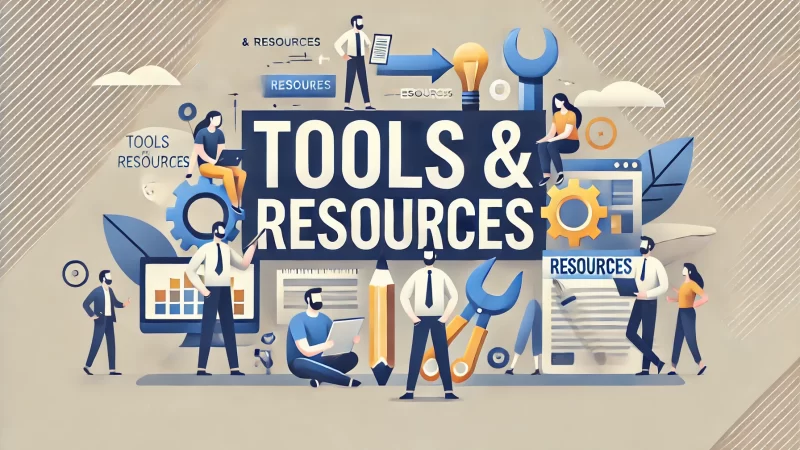
Starting an online business without prior experience can feel intimidating, but with the right tools and resources, it becomes much easier. I’ve found that there are countless free or low-cost platforms that can help you launch and grow your business effectively. These tools save time, money, and frustration along the way.
There are also valuable learning platforms and communities that can accelerate your growth. I recommend tapping into these resources to build your skills and network with like-minded individuals. The support you gain from these networks can make a big difference as you navigate your entrepreneurial journey.
Free And Low-Cost Tools To Start Your Own Online Business
When you’re just starting out, it’s important to keep costs low. Luckily, there are plenty of free and low-cost tools available that can help you build your business without a hefty investment. I’ve used tools like WordPress for website creation, which offers both free and affordable options to set up a professional-looking site.
For email marketing, I recommend Moosend or ConvertKit. Both platforms offer free tiers to help you grow your audience from day one. I love how these tools make it easy to automate your marketing efforts, allowing you to focus on other areas of your business while still nurturing leads.
Canva is another fantastic tool I frequently use for graphic design. Whether you need logos, social media graphics, or marketing materials, Canva’s free version is more than sufficient for beginners. I’ve found it to be a great way to create eye-catching visuals without needing design experience.
When it comes to managing tasks and staying organized, I suggest using tools like Trello or Asana. Both are free and offer simple ways to track progress on projects, collaborate with others, and stay on top of deadlines. These tools have helped me stay focused and productive.
For social media management, tools like Buffer or Hootsuite offer free plans that allow you to schedule posts in advance. I’ve found that scheduling content ahead of time saves me a lot of stress and keeps my social media presence consistent, even when I’m busy with other tasks.
Learning Platforms To Master Key Skills Quickly
One of the best things about starting an online business today is the wealth of learning platforms available. I suggest using platforms like Udemy or Coursera to master new skills. Both offer affordable courses on everything from marketing to web development, allowing you to learn at your own pace.
I also recommend Skillshare for creative entrepreneurs. Whether you want to learn graphic design, copywriting, or video editing, Skillshare offers a variety of classes that cater to different levels. I love how these platforms provide practical, hands-on learning that can immediately be applied to your business.
YouTube is another excellent, free resource. I often turn to YouTube for tutorials on technical topics like SEO, website building, or social media strategies. The range of content is vast, and I’ve found that many experienced entrepreneurs share valuable insights and step-by-step guides on the platform.
Podcasts are a great way to learn on the go. I recommend subscribing to business-focused podcasts like “The Tim Ferriss Show” or “Smart Passive Income.” I find that hearing from successful entrepreneurs can provide both inspiration and actionable tips that you can implement in your own business.
For those looking to improve their digital marketing skills, I suggest checking out Google’s free certifications. Google offers courses on topics like Google Ads and Analytics, helping you build expertise in crucial areas that can drive traffic and revenue for your business.
Joining Online Communities And Networks To Grow Faster
Community support is invaluable when starting an online business. I’ve found that joining online networks can provide advice, accountability, and motivation. Facebook groups, Reddit forums, and LinkedIn communities are great places to connect with other entrepreneurs who are on the same journey as you.
I recommend joining niche-specific groups. If you’re into e-commerce, for example, there are plenty of Facebook groups dedicated to dropshipping or affiliate marketing. These communities offer real-time advice and solutions to common challenges. I’ve received valuable tips and resources just by engaging with these groups.
Mastermind groups are another fantastic way to grow your business. I’ve participated in small, focused groups where entrepreneurs meet regularly to share progress and discuss challenges. The feedback I’ve received from these groups has been instrumental in keeping me accountable and motivated.
Don’t be afraid to network with others. I suggest reaching out to people who inspire you, whether it’s through social media or email. I’ve found that most entrepreneurs are open to connecting and offering advice. Building relationships in your industry can lead to collaborations, partnerships, or mentorship opportunities.
Lastly, I recommend attending webinars and online conferences. These events are a great way to stay updated on trends and learn from experts. Plus, they offer networking opportunities with people in your niche. I’ve made some of my most valuable connections through virtual events, which have opened doors to new opportunities.
Conclusion: You Have What It Takes To Start Your Own Online Business
Starting your own online business may seem like a huge undertaking, but I believe you already have what it takes. Whether it’s dropshipping, affiliate marketing, or offering digital products, the key is to start small and stay consistent. Every successful entrepreneur began as a beginner, just like you.
I’ve seen that with the right mindset and practical steps, anyone can turn an idea into a thriving business. The tools, resources, and communities available today make it easier than ever to succeed, even without prior experience. Remember, you’re not alone in this journey, and each step you take brings you closer to your goals.
Recap: The Most Important Takeaways To Keep In Mind
Throughout this guide, I’ve shared actionable tips and insights to help you start your own online business. The most important takeaway? Focus on simplicity and consistency. Don’t try to do everything at once. I suggest narrowing down your niche, learning as you go, and embracing the challenges that come your way.
I advise keeping your goals realistic. By setting small, achievable milestones, you’ll stay motivated and maintain momentum. Remember that patience is essential—success doesn’t happen overnight, but the journey is part of the process. I find that staying flexible and adapting to change will help you overcome inevitable obstacles.
Another takeaway is the importance of leveraging free or low-cost tools to grow your business. From building a website to marketing your products, I’ve noticed that using accessible resources can save time and money. Tools like Canva, WordPress, and email platforms can help you launch and scale without breaking the bank.
Building relationships with your audience is crucial for long-term success. Whether through social media, email, or your website, I recommend creating valuable content that resonates with your customers. I’ve found that authenticity and engagement lead to trust, and trust leads to sales.
Lastly, don’t forget to celebrate your progress. I believe that acknowledging small wins will keep you motivated. Whether it’s gaining your first customer or hitting a new revenue milestone, every achievement matters. I’ve noticed that those who appreciate their progress often stay more inspired and resilient.
Why Taking Action Today Is The First Step Toward Success
The biggest hurdle for many aspiring entrepreneurs is simply getting started. I know how easy it is to get stuck in analysis paralysis, where overthinking keeps you from taking the first step. I suggest acting now, even if you feel uncertain. Starting today can make all the difference in turning your dreams into reality.
I’ve learned that taking action doesn’t have to be overwhelming. Start with one small task, like researching your niche or creating a simple website. Each step builds momentum. I recommend focusing on progress, not perfection. You’ll improve as you go, and taking those first few actions will set the foundation for future success.
Success is often a result of consistent effort. I’ve heard many entrepreneurs say that the difference between those who succeed and those who don’t is persistence. By committing to take action, even when things get tough, you’ll develop the resilience needed to see your business through. I’ve found that perseverance is one of the most valuable traits in entrepreneurship.
If you wait for the perfect moment, you might wait forever. I believe that the best time to start is now, even if everything isn’t perfectly in place. The online business world is full of opportunities, and I think that by starting today, you’re already ahead of the game. It’s not about having all the answers—it’s about learning as you go.
Every successful online business began with a single step. I’ve seen that taking action today will bring you closer to where you want to be tomorrow. It’s an exciting journey filled with growth, challenges, and rewards. I’m confident that by starting now, you’re on the path to building a business you can be proud of.
Frequently Asked Questions (FAQ)
What is the best online business to start with no experience?
If you have no prior experience, I recommend starting with something simple like dropshipping, affiliate marketing, or creating digital products. These models don’t require you to hold inventory or have technical skills. They allow you to learn as you grow, and you can use free tools to manage and promote your business.
How much money do I need to start an online business?
The great thing about online businesses is that you can start with very little upfront investment. For example, you can build a basic website for under $100, and many platforms offer free or low-cost tools. As you grow, you can reinvest earnings to expand your business, but starting small is completely viable.
How long does it take to see success in an online business?
Success timelines vary depending on your niche, efforts, and marketing strategies. Some entrepreneurs see progress within a few months, while for others, it may take a year or more. I advise staying consistent, focusing on delivering value to your audience, and continuously improving your strategy. Patience is key.
Do I need technical skills to start an online business?
No, you don’t need advanced technical skills to start. Platforms like Shopify, WordPress, and Teachable make it easy to create and manage a business without coding knowledge. If you ever run into technical challenges, there are plenty of tutorials and resources available online to guide you through the process.
How do I attract customers to my online business?
To attract customers, I suggest leveraging social media, content marketing, and SEO. Share valuable content, engage with your audience, and optimize your website for search engines. Email marketing and networking with influencers in your niche can also help drive traffic to your site and boost sales.
Can I start an online business while working a full-time job?
Yes, many people start online businesses as a side hustle while maintaining full-time jobs. I recommend setting aside dedicated time each day or week to work on your business. The flexibility of online businesses allows you to grow at your own pace without quitting your job right away.


